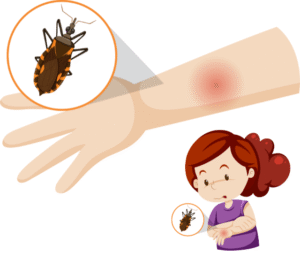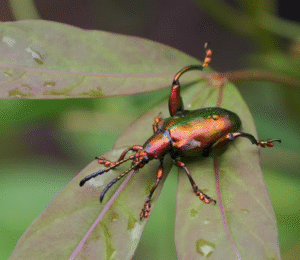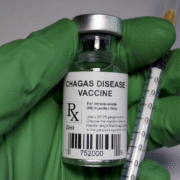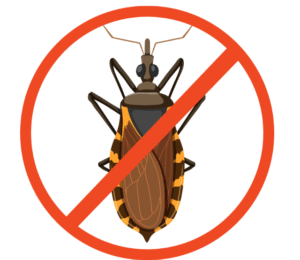Understanding Chagas Disease
Symptoms, Risks, and Treatment in Texas
Chagas disease is a serious but often overlooked condition caused by the parasite Trypanosoma cruzi. It spreads primarily through insects known as “kissing bugs,” which are increasingly found in parts of the United States, including Texas. Many people may carry the infection without knowing it, making awareness and testing critical. At Gentle Primary Care in Sugar Land, TX, Dr. Mobin and Dr. Mehjabin Parkar, MD are committed to providing accurate testing, diagnosis, and guidance for individuals concerned about Chagas disease.
What is Chagas Disease in Humans?
Chagas disease is an infection that starts when the parasite Trypanosoma cruzi enters the bloodstream. It is commonly spread by kissing bugs (also called triatomine bugs) that bite humans, usually at night, and leave behind infected feces near the bite wound. The infection can be acute or chronic and may cause serious long-term health problems if left untreated.
Why is Chagas Disease Relevant in Texas?
Texas has seen a growing number of reported cases, both from travelers returning from Latin America and from local transmission. Kissing bugs are naturally found in the southern United States, especially in rural areas where outdoor exposure is common. With warmer weather and increased human–insect interaction, awareness of this disease is more important than ever.
If you live in Sugar Land, Richmond, Telfair, or other nearby areas of Texas, Gentle Primary Care can provide testing and evaluation if you suspect exposure to Chagas disease.
 Symptoms of Chagas Disease
Symptoms of Chagas Disease
Chagas disease develops in two phases:
Acute Phase (First Weeks or Months)
-
Mild fever
-
Fatigue
-
Swelling around the eye or bite site
-
Headache and body aches
Chronic Phase (Years Later)
-
heartbeat
-
Heart failure
-
Digestive problems (enlarged esophagus or colon)
-
Stroke risk
Because many people do not feel symptoms in the acute phase, the disease often goes undiagnosed until serious complications arise.
How is Chagas Disease Diagnosed?
Testing is the most reliable way to confirm infection. Blood tests can detect antibodies against T. cruzi. If you live in Texas and think you may have been exposed, Dr. Mobin and Dr. Mehjabin Parkar at Gentle Primary Care can guide you through the proper testing process and ensure accurate results.
Treatment Options for Chagas Disease
Treatment depends on the stage of the infection:
-
Acute Phase: Antiparasitic medications, such as benznidazole or nifurtimox, may be prescribed.
-
Chronic Phase: While medications may reduce the parasite load, treatment often focuses on managing complications like heart disease or digestive issues.
Early detection is key. That’s why seeking care promptly after possible exposure is important.
Prevention Tips for Texas Residents
-
Seal cracks in homes to prevent kissing bugs from entering
-
Avoid sleeping in poorly constructed housing when traveling in rural areas
-
Keep outdoor lights away from sleeping areas (lights attract insects)
-
Use screens on windows and doors
Frequently Asked Questions About Chagas Disease
1. What is Chagas disease in humans?
Chagas disease is a parasitic infection caused by Trypanosoma cruzi. It spreads mainly through kissing bugs but can also be passed through blood transfusion, organ transplantation, or from mother to baby during pregnancy.
2. How do you test for Chagas disease?
A simple blood test is used to detect antibodies against the parasite. In some cases, two different tests may be required to confirm the diagnosis. Dr. Mobin and Dr. Mehjabin Parkar at Gentle Primary Care in Sugar Land offer testing for patients concerned about exposure.
3. Is there a cure for Chagas disease?
Chagas disease can be treated with antiparasitic medications, especially in the early stages. In chronic cases, treatment focuses on managing heart or digestive complications. Early detection provides the best outcomes.
4. How big are kissing bugs?
Kissing bugs are relatively large, typically about 0.5 to 1 inch long. They have a distinctive cone-shaped head and a red or orange band around their edges.
5. Can kissing bugs fly?
Yes, kissing bugs can fly, though they often crawl onto their host when feeding at night. Their ability to fly increases the risk of human exposure.
6. Where are kissing bugs found in Texas?
Kissing bugs are found across Texas, particularly in rural areas, wooded regions, and places where people and outdoor animals live in close contact.
7. Is Chagas disease spreading in Texas?
Yes, cases of Chagas disease have been reported in Texas. While many cases are linked to travel, there is evidence of local transmission. This makes awareness and testing critical for Texas residents.
8. Who is most at risk of Chagas disease?
People living in rural areas, those with outdoor animals, and individuals who travel to regions where the disease is more common are at higher risk.
9. Can Chagas disease be deadly?
Yes, untreated chronic Chagas disease can lead to severe heart problems, digestive disorders, and even death. This is why timely testing and treatment are essential.
10. What should I do if I think I’ve been exposed to kissing bugs?
If you suspect exposure, schedule a consultation with Dr. Mobin or Dr. Mehjabin Parkar at Gentle Primary Care in Sugar Land for testing and guidance. Early evaluation can prevent serious complications.
 Local Care You Can Trust in Sugar Land, TX
Local Care You Can Trust in Sugar Land, TX
If you are worried about Chagas disease or have seen kissing bugs in your area, don’t wait. Dr. Mobin and Dr. Mehjabin Parkar at Gentle Primary Care provide comprehensive evaluation, testing, and treatment options for patients in Sugar Land, Richmond, and Telfair, TX.
📍 Address: 6909 Brisbane Court, Ste 300, Sugar Land, TX 77479
📞 Phone: 281-801-7855
📧 Email: info@gentleprimarycare.com
We are pleased to offer same-day, evening, and weekend appointments for your convenience.





The blog is a clear, informative primer that raises essential awareness about the often-overlooked risks, diagnosis, and treatment of Chagas disease especially in Texas.